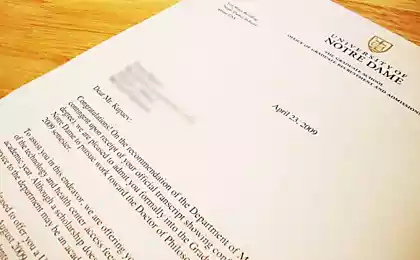163
The Pennebaker Method: Just 3 Days to Get Better
The Dallas computer company fired a hundred senior engineers. Most of them were in their fifties and had worked for the company for half their lives. It was the only job they could do and loved.
Those fired were in panic. Four months later, none of them could find a new job. For the first time, they faced the problem of unemployment and realized the likelihood that they would never be in demand again in their field.
To help the dismissed came Professor Pennebaker, the author of the method of “expressive writing”. Engineers who were out of work were happy about any opportunity to break out of depression.

Expressive writing method: write without notes, without stopping
They had to write about everything they felt after being fired.: humiliation, rejection, anger. How bad their hearts were and how bad they were physically. How this unpleasant event affected their family, both morally and financially.
The rules were: “A timer must be set for 20 minutes. Open a notebook or file on your computer. When the timer signals, start writing. Without thinking about punctuation, the points and where they are on the keyboard. Especially literacy and accuracy.
The sequence of events is not important either. Just write down the stream of thoughts, all in a row, even if they jump. You want to put three exclamation points, please.
Write all the expressions that come to mind, without notes, in direct text. Just write what comes from within. Write for yourself. For no one else, without referring to an addressee.
When the timer rings, stop. The next day, open the notebook again and write for 20 minutes about those events and your emotions.
Repeat the exercise for three days. If you feel that you have not yet expressed everything, you can continue a few more days.
Then close the document and do not save it. Press delete. If you write on paper, throw it away. Or put it in a bottle and throw it into the sea if you prefer. Find a literary agent or open your blog. It doesn't matter.
They wrote about what they experienced, the whole truth. Not only did they leave their emotions on paper, but they finally managed to act.
While engineers were writing, little had changed in their lives. Their motivation changed. A month later, she was so strong that they left all doubts and began to actively seek and find a new job.
Don’t get it wrong: they didn’t find a way to be happy that they were unemployed, they didn’t write phrases like “thank you for this challenge in my life.” They wrote about what they experienced, the whole truth. And it didn't just help them put their emotions on paper. They looked at the situation from the outside. On their sheets began to appear the words “the reason was that”, “I now understand”, “I was amazed that”.
In the process of writing, they created a distance between the person who experienced it and the person sitting at the table.. Between the one who writes and the written, the one who feels and the feeling itself, between the thought and the one who thinks. And it gave them a new perspective, a new perspective.
For those who don’t like writing, you don’t have to take pen and paper. You can put it all on the recorder if you feel better. The effect will be the same as the letter.
He got up every morning and kept writing. Suddenly something strange started to happen. It made him feel better.
How it came about.
This method has a background. Its author James Pennebaker, now a professor emeritus at the University of Texas, came to him back in the 70s when he fell into depression after his divorce. He began to eat less, drink more, and wanted to isolate himself more and more.
A month later, he crawled out of bed, sat down at the typewriter. For a moment, he was not watching it, and then he began to write freely and nonstop about himself, about marriage, about his parents, about his sexuality and his career. Even your own death.
He got up every morning and kept writing.. Then something strange started to happen. He felt that he was becoming free, he felt better. He suddenly realized how much he loved his wife. For the first time, he saw a clear purpose and opportunity in his life.

Three days to get better.
For more than 40 years, Pennebaker has worked on how writing can help ease the experience of difficult emotions. His method of emotional writing became known all over the world and helped many people.
Three days for 20 minutes, hundreds of people wrote about what lay on the soul for years. Loss and guilt. Accidents that cannot be predicted. One woman wrote about leaving a toy on the floor as a child, leading to a tragic incident.
The man recalled that at the age of eight, his father invited him for a walk on a warm summer evening and reported that he had made a big mistake having children and that now he was leaving.
Months went by after they put it all on paper, and there was a steady improvement in their condition. Not only emotionally, but also physically. They lowered their blood pressure and began to get sick less.
Mikhail Litvak: If you want your partner to change, it’s a fantasy. Clamps in the throat - your "unspoken" problems for years
Susan David, who wrote a book about it, recalls how at the age of 14 she began writing in her diary about all the things she didn't have time to say to her father before he died. She didn't know there was a Pennebaker method. That she would later become a journalist and defend her dissertation on emotions. Moreover, one day she will meet with Pennebaker and talk to him. At that point, she just knew that although she was going through intense grief, she could live. published
Source: www.qwww.psychologies.ru/self-knowledge/behavior/vsego-tri-dnya-na-to-chtobyi-stalo-luchshe/ui.help/blog/metod-pennebejkera-vsego-tri-dnya-na-to-chtoby-stalo-luchshe-qui
Those fired were in panic. Four months later, none of them could find a new job. For the first time, they faced the problem of unemployment and realized the likelihood that they would never be in demand again in their field.
To help the dismissed came Professor Pennebaker, the author of the method of “expressive writing”. Engineers who were out of work were happy about any opportunity to break out of depression.

Expressive writing method: write without notes, without stopping
They had to write about everything they felt after being fired.: humiliation, rejection, anger. How bad their hearts were and how bad they were physically. How this unpleasant event affected their family, both morally and financially.
The rules were: “A timer must be set for 20 minutes. Open a notebook or file on your computer. When the timer signals, start writing. Without thinking about punctuation, the points and where they are on the keyboard. Especially literacy and accuracy.
The sequence of events is not important either. Just write down the stream of thoughts, all in a row, even if they jump. You want to put three exclamation points, please.
Write all the expressions that come to mind, without notes, in direct text. Just write what comes from within. Write for yourself. For no one else, without referring to an addressee.
When the timer rings, stop. The next day, open the notebook again and write for 20 minutes about those events and your emotions.
Repeat the exercise for three days. If you feel that you have not yet expressed everything, you can continue a few more days.
Then close the document and do not save it. Press delete. If you write on paper, throw it away. Or put it in a bottle and throw it into the sea if you prefer. Find a literary agent or open your blog. It doesn't matter.
They wrote about what they experienced, the whole truth. Not only did they leave their emotions on paper, but they finally managed to act.
While engineers were writing, little had changed in their lives. Their motivation changed. A month later, she was so strong that they left all doubts and began to actively seek and find a new job.
Don’t get it wrong: they didn’t find a way to be happy that they were unemployed, they didn’t write phrases like “thank you for this challenge in my life.” They wrote about what they experienced, the whole truth. And it didn't just help them put their emotions on paper. They looked at the situation from the outside. On their sheets began to appear the words “the reason was that”, “I now understand”, “I was amazed that”.
In the process of writing, they created a distance between the person who experienced it and the person sitting at the table.. Between the one who writes and the written, the one who feels and the feeling itself, between the thought and the one who thinks. And it gave them a new perspective, a new perspective.
For those who don’t like writing, you don’t have to take pen and paper. You can put it all on the recorder if you feel better. The effect will be the same as the letter.
He got up every morning and kept writing. Suddenly something strange started to happen. It made him feel better.
How it came about.
This method has a background. Its author James Pennebaker, now a professor emeritus at the University of Texas, came to him back in the 70s when he fell into depression after his divorce. He began to eat less, drink more, and wanted to isolate himself more and more.
A month later, he crawled out of bed, sat down at the typewriter. For a moment, he was not watching it, and then he began to write freely and nonstop about himself, about marriage, about his parents, about his sexuality and his career. Even your own death.
He got up every morning and kept writing.. Then something strange started to happen. He felt that he was becoming free, he felt better. He suddenly realized how much he loved his wife. For the first time, he saw a clear purpose and opportunity in his life.

Three days to get better.
For more than 40 years, Pennebaker has worked on how writing can help ease the experience of difficult emotions. His method of emotional writing became known all over the world and helped many people.
Three days for 20 minutes, hundreds of people wrote about what lay on the soul for years. Loss and guilt. Accidents that cannot be predicted. One woman wrote about leaving a toy on the floor as a child, leading to a tragic incident.
The man recalled that at the age of eight, his father invited him for a walk on a warm summer evening and reported that he had made a big mistake having children and that now he was leaving.
Months went by after they put it all on paper, and there was a steady improvement in their condition. Not only emotionally, but also physically. They lowered their blood pressure and began to get sick less.
Mikhail Litvak: If you want your partner to change, it’s a fantasy. Clamps in the throat - your "unspoken" problems for years
Susan David, who wrote a book about it, recalls how at the age of 14 she began writing in her diary about all the things she didn't have time to say to her father before he died. She didn't know there was a Pennebaker method. That she would later become a journalist and defend her dissertation on emotions. Moreover, one day she will meet with Pennebaker and talk to him. At that point, she just knew that although she was going through intense grief, she could live. published
Source: www.qwww.psychologies.ru/self-knowledge/behavior/vsego-tri-dnya-na-to-chtobyi-stalo-luchshe/ui.help/blog/metod-pennebejkera-vsego-tri-dnya-na-to-chtoby-stalo-luchshe-qui























